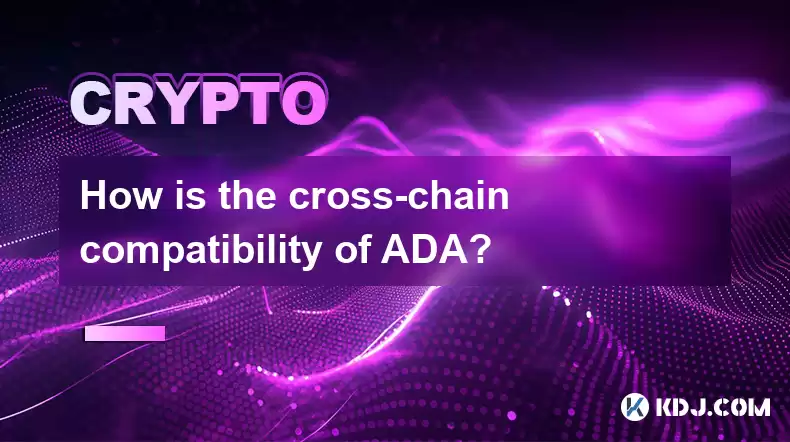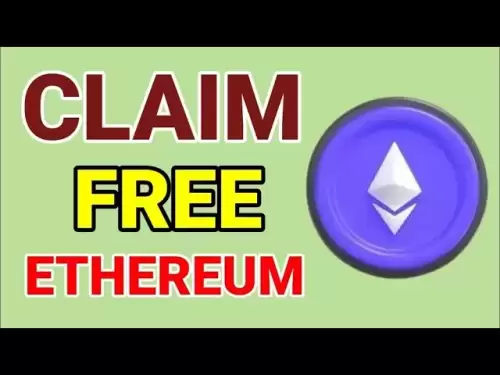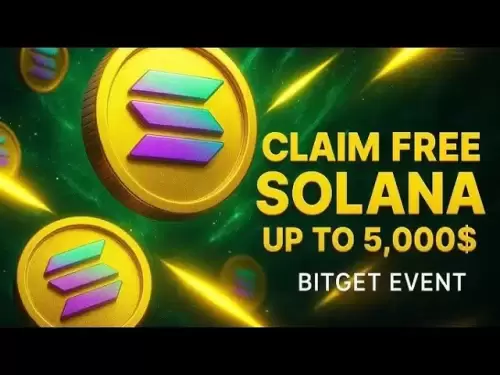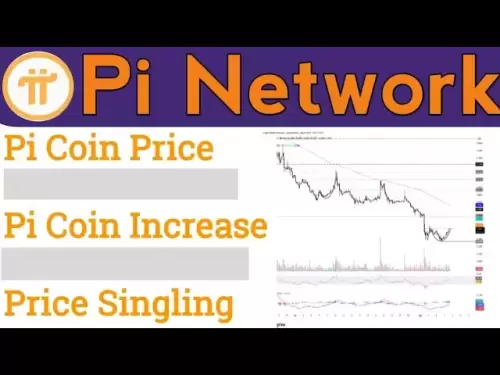-
 Bitcoin
Bitcoin $118300
1.01% -
 Ethereum
Ethereum $4215
0.69% -
 XRP
XRP $3.198
-3.83% -
 Tether USDt
Tether USDt $1.000
-0.01% -
 BNB
BNB $803.4
-0.53% -
 Solana
Solana $180.3
-0.67% -
 USDC
USDC $0.9998
-0.01% -
 Dogecoin
Dogecoin $0.2334
-1.49% -
 TRON
TRON $0.3394
0.86% -
 Cardano
Cardano $0.7980
-1.45% -
 Chainlink
Chainlink $22.19
6.65% -
 Hyperliquid
Hyperliquid $43.41
0.13% -
 Stellar
Stellar $0.4407
-3.13% -
 Sui
Sui $3.843
-2.24% -
 Bitcoin Cash
Bitcoin Cash $564.7
-3.74% -
 Hedera
Hedera $0.2588
-3.41% -
 Ethena USDe
Ethena USDe $1.001
0.00% -
 Avalanche
Avalanche $23.64
-3.37% -
 Litecoin
Litecoin $120.0
-4.01% -
 Toncoin
Toncoin $3.342
-1.11% -
 UNUS SED LEO
UNUS SED LEO $9.038
0.60% -
 Shiba Inu
Shiba Inu $0.00001347
-0.81% -
 Uniswap
Uniswap $10.69
-4.58% -
 Polkadot
Polkadot $4.034
-1.30% -
 Dai
Dai $1.000
0.01% -
 Bitget Token
Bitget Token $4.472
-1.52% -
 Cronos
Cronos $0.1571
-3.04% -
 Pepe
Pepe $0.00001207
-2.21% -
 Monero
Monero $273.8
-3.19% -
 Ethena
Ethena $0.7520
2.75%
How is the cross-chain compatibility of ADA?
Cardano prioritizes secure, decentralized cross-chain solutions, using DEXs and sidechains like Milkomeda, rather than direct bridges. Future Hydra integration promises faster, cheaper transactions, though the approach is less immediately seamless than some competitors.
Mar 05, 2025 at 08:13 am

Key Points:
- Cardano's cross-chain compatibility is currently developing, primarily focusing on interoperability solutions rather than direct bridges.
- The primary method relies on decentralized exchanges (DEXs) and protocols built on Cardano's blockchain.
- Future development aims to enhance cross-chain capabilities through projects like Milkomeda and potentially through the integration of Hydra.
- While not as seamless as some other solutions, Cardano's approach prioritizes security and decentralization.
- Several projects are actively working on improving and expanding Cardano's cross-chain capabilities.
How is the Cross-Chain Compatibility of ADA?
Cardano (ADA), with its focus on peer-reviewed research and a layered architecture, approaches cross-chain compatibility differently than many other blockchains. It doesn't currently offer a single, universally accepted method for direct cross-chain transfers like some competitors. Instead, it's building a robust ecosystem of solutions aimed at achieving interoperability without compromising security or decentralization. This approach necessitates a deeper understanding of the available methods.
One primary route for cross-chain transactions involving ADA is through decentralized exchanges (DEXs). These platforms operate on Cardano and facilitate swaps between ADA and other cryptocurrencies. Users can trade ADA for tokens on other blockchains, effectively achieving a form of cross-chain interaction. However, this isn't a direct transfer; it's a trade mediated by the DEX's liquidity pools.
Another approach centers around specific protocols and sidechains built to bridge Cardano with other networks. Milkomeda, for example, is a crucial project in this area. It's an EVM-compatible sidechain built on Cardano, enabling developers to port Ethereum-based decentralized applications (dApps) and smart contracts to the Cardano ecosystem. This effectively allows interaction with Ethereum's vast network of tokens and applications. However, transactions still require movement between Cardano's mainnet and Milkomeda.
The potential integration of Hydra, Cardano's proposed layer-2 scaling solution, could significantly enhance cross-chain capabilities in the future. Hydra aims to improve transaction throughput and reduce fees. By enhancing the efficiency of the Cardano network, it indirectly improves the speed and cost-effectiveness of cross-chain interactions facilitated by DEXs or other bridging protocols. The integration of Hydra with cross-chain solutions remains a future development, but it promises to be a significant improvement.
The approach Cardano takes prioritizes security and decentralization over immediate, direct cross-chain transfers. While this might seem slower compared to some competitors with readily available bridges, it aligns with Cardano's overall philosophy of rigorous development and a cautious approach to implementing new technologies. This careful approach is designed to mitigate potential risks and vulnerabilities associated with rapid expansion.
Several projects are actively working on expanding Cardano's cross-chain functionality. Beyond Milkomeda, various teams are developing tools and protocols to enhance interoperability with other prominent blockchains. These ongoing efforts suggest a commitment to improving cross-chain capabilities over time. The ecosystem's evolution will likely involve a combination of DEXs, sidechains, and possibly direct bridge solutions as the technology matures.
How does Cardano's approach differ from other blockchains in handling cross-chain compatibility?
Cardano’s strategy emphasizes a decentralized and secure approach, often prioritizing development and peer review over immediate solutions. Unlike some blockchains with readily available central bridges, Cardano's progress is slower, but arguably more robust.
What are the advantages and disadvantages of Cardano's approach to cross-chain compatibility?
Advantages include enhanced security and decentralization, reducing the risks associated with centralized bridge solutions. Disadvantages include a less seamless user experience compared to direct cross-chain bridges, and a potentially slower pace of development.
What role does Milkomeda play in Cardano's cross-chain strategy?
Milkomeda serves as a crucial EVM-compatible sidechain, allowing for the bridging of Ethereum-based applications and tokens to the Cardano ecosystem, increasing its interoperability with a significant portion of the DeFi landscape.
How will Hydra impact Cardano's cross-chain capabilities?
Hydra, once fully integrated, will likely enhance the speed and efficiency of existing cross-chain solutions by improving the overall throughput and reducing fees on the Cardano mainnet. This indirect enhancement will make cross-chain interactions faster and cheaper.
Are there any other projects working on improving Cardano's cross-chain compatibility?
Yes, various projects are actively involved in developing new tools and protocols to expand Cardano's interoperability with other blockchains. The details of these projects are constantly evolving, and the Cardano community is actively involved in their development and implementation.
What is the future outlook for cross-chain compatibility on Cardano?
The future likely involves a combination of decentralized exchanges, sidechains like Milkomeda, and potentially the integration of Hydra, creating a more robust and diverse ecosystem for cross-chain transactions. The emphasis will remain on security and decentralization, guiding the development of these solutions.
Disclaimer:info@kdj.com
The information provided is not trading advice. kdj.com does not assume any responsibility for any investments made based on the information provided in this article. Cryptocurrencies are highly volatile and it is highly recommended that you invest with caution after thorough research!
If you believe that the content used on this website infringes your copyright, please contact us immediately (info@kdj.com) and we will delete it promptly.
- Dogwifhat's Comeback: Solana Meme Coin Mania and Beyond!
- 2025-08-10 18:30:15
- Shiba Inu Price Drop Alert: Can Google AI Predict the Future?
- 2025-08-10 18:30:15
- NEAR Protocol Rebound: Eyes on $4.63 as Bullish Momentum Builds
- 2025-08-10 17:30:13
- Bitcoin Cash Halving: Will the Price Fall or Fly?
- 2025-08-10 17:30:13
- Uniswap (UNI) Under Bearish Pressure: A Technical Analysis Deep Dive
- 2025-08-10 17:30:15
- DOT Price on the Rise: Polkadot's Bullish Momentum Heats Up!
- 2025-08-10 17:30:15
Related knowledge

How to purchase Aragon (ANT)?
Aug 09,2025 at 11:56pm
Understanding Aragon (ANT) and Its PurposeAragon (ANT) is a decentralized governance token that powers the Aragon Network, a platform built on the Eth...

What is the most secure way to buy Ocean Protocol (OCEAN)?
Aug 10,2025 at 01:01pm
Understanding Ocean Protocol (OCEAN) and Its EcosystemOcean Protocol (OCEAN) is a decentralized data exchange platform built on blockchain technology,...

Where can I buy UMA (UMA)?
Aug 07,2025 at 06:42pm
Understanding UMA and Its Role in Decentralized FinanceUMA (Universal Market Access) is an Ethereum-based decentralized finance (DeFi) protocol design...

How to buy Storj (STORJ) tokens?
Aug 09,2025 at 07:28am
Understanding Storj (STORJ) and Its Role in Decentralized StorageStorj is a decentralized cloud storage platform that leverages blockchain technology ...

What is the best app to buy Nano (NANO)?
Aug 09,2025 at 03:35am
Understanding Nano (NANO) and Its Unique FeaturesNano is a feeless, instant cryptocurrency designed for fast peer-to-peer transactions. Unlike many ot...

Where can I purchase Siacoin (SC)?
Aug 08,2025 at 11:14am
Understanding Siacoin (SC) and Its Role in the Sia NetworkSiacoin (SC) is the native cryptocurrency of the Sia decentralized cloud storage platform, a...

How to purchase Aragon (ANT)?
Aug 09,2025 at 11:56pm
Understanding Aragon (ANT) and Its PurposeAragon (ANT) is a decentralized governance token that powers the Aragon Network, a platform built on the Eth...

What is the most secure way to buy Ocean Protocol (OCEAN)?
Aug 10,2025 at 01:01pm
Understanding Ocean Protocol (OCEAN) and Its EcosystemOcean Protocol (OCEAN) is a decentralized data exchange platform built on blockchain technology,...

Where can I buy UMA (UMA)?
Aug 07,2025 at 06:42pm
Understanding UMA and Its Role in Decentralized FinanceUMA (Universal Market Access) is an Ethereum-based decentralized finance (DeFi) protocol design...

How to buy Storj (STORJ) tokens?
Aug 09,2025 at 07:28am
Understanding Storj (STORJ) and Its Role in Decentralized StorageStorj is a decentralized cloud storage platform that leverages blockchain technology ...

What is the best app to buy Nano (NANO)?
Aug 09,2025 at 03:35am
Understanding Nano (NANO) and Its Unique FeaturesNano is a feeless, instant cryptocurrency designed for fast peer-to-peer transactions. Unlike many ot...

Where can I purchase Siacoin (SC)?
Aug 08,2025 at 11:14am
Understanding Siacoin (SC) and Its Role in the Sia NetworkSiacoin (SC) is the native cryptocurrency of the Sia decentralized cloud storage platform, a...
See all articles

























































































